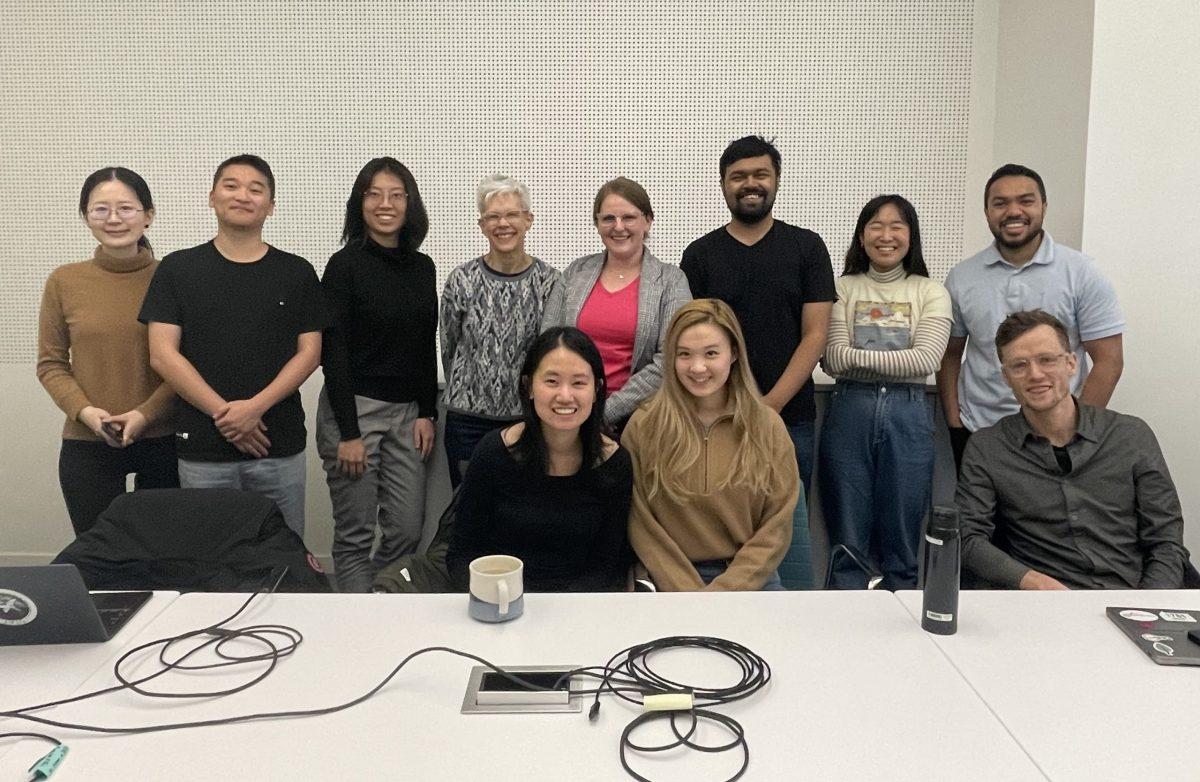
Benson (back center) with Susan A. Murphy and the Reinforcement Learning Lab team.
The potential of mobile health (mHealth) applications in driving behavioral change for smoking cessation is immense, yet the challenge lies in optimizing the design of these apps. In particular, many questions remain about how to develop engagement strategies, which are crucial in maintaining user engagement with the embedded interventions.
Assistant Professor Libby Benson, who recently joined the d3center team, is at the forefront of this innovation. With a rich background in developing groundbreaking data visualizations, Benson’s work has significantly contributed to understanding behavior patterns through collected data. Her insights reveal a paradox: while users express interest in their own data, their interaction with data visualization components in apps is surprisingly low.
In a collaborative effort with the Harvard John A. Paulson School of Engineering and Applied Mathematics’ Reinforcement Learning Lab, led by d3center principal investigator Susan A. Murphy, Benson aims to elevate user engagement by integrating artificial intelligence with data visualization in mHealth applications.
During a recent visit to the Reinforcement Learning Lab, Benson emphasized the importance of her previous research in future work geared toward advancing “Personalizing JITAIs”—a novel breed of just-in-time adaptive interventions. These pJITAIs, enhanced with reinforcement learning algorithms, are designed to not only adapt interventions in real-time on a user-by-user basis but also evolve their intervention protocols over time to cater to the dynamic needs of users.
Looking ahead, Benson envisions a future where the visualization and communication of individual user data are further tailored to boost user engagement. To set this vision in motion, Murphy, Benson, and d3center director Inbal Billie Nahum-Shani are planning a pilot micro-randomized trial to evaluate the feasibility and acceptance of various data visualizations and self-relevant prompts for engaging participants in the personalized data visualizations. This trial will lay the foundation for future research, potentially leveraging reinforcement learning to personalize the delivery and content of data visualizations at an individual level, aiming to enhance user engagement in digital health interventions.
LET’S STAY IN TOUCH
Join the d3center Mailing List
Keep up to date with the latest news, events, software releases, learning modules, and resources from the d3center.